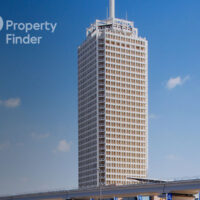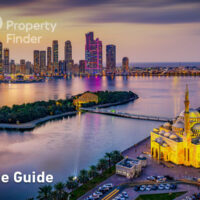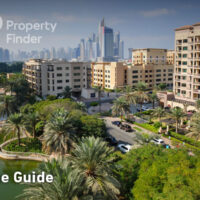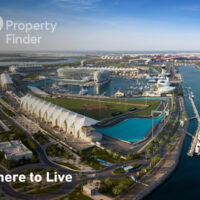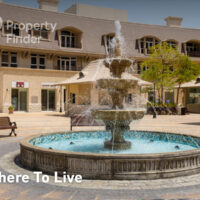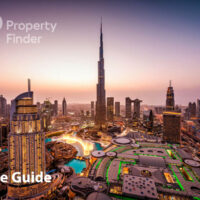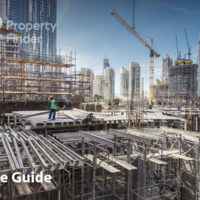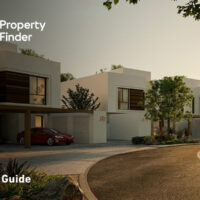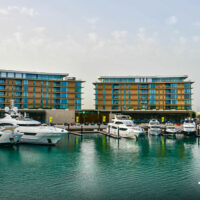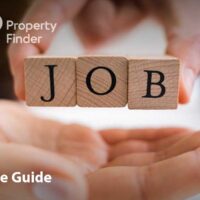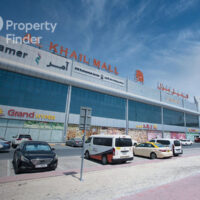Key points to consider when buying an office in Dubai.
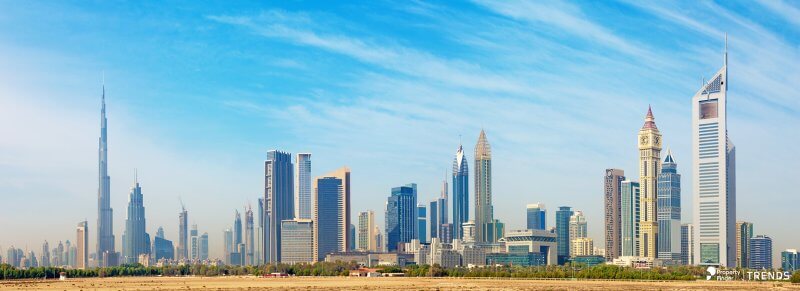
There are a lot of factors to take into consideration when buying an office in Dubai. As a commercial specialist with over six years of consistent work in the commercial market, I have gained the insight and knowledge which allows me to guide you in the exciting process of buying an office and owning a commercial space.
Below I have outlined some key points to take into consideration.
Are You Buying as An End User or An Investor?
There are two scenarios for investing in a commercial space, one being you’re the end user and the other you’re an investor. An end user is simply the ultimate consumer of a finished product; in real estate this applies to the person or organisation that occupies the space. One of the most important decisions that you have to make as a business owner is whether to buy or rent an office, and if you choose to buy, then looking for the perfect home for your business is imperative.
One of the most important decisions that you have to make as a business owner is whether to buy or rent an office, and if you choose to buy, then looking for the perfect home for your business is imperative.
As a business owner, it is essential to know and understand factors such as turnover, marketing, staff satisfaction, market forecast, feasibility, and more. If you have been up and running for a while the process will probably be a little bit easier for you. If you are working on a start-up then you should have the money to invest in your business as well as the office purchase.
According to the Dubai SME Finance study, a majority of SME’s (80%) had to use their personal money/savings/and or equity as a primary source of finance to start a business in Dubai. Businesses also largely tend to reinvest profits rather than resort to bank finance to expand the company’s operations. Only 23% of SME’s had access to finance over the last five years (compared to 25% of firms in the MENA region, 45% in South Asia, and 57% in Eastern Europe). With these figures in place, one must be aware of the personal cost to SME owners.
You will also need to plan ahead for potential growth as there is no point in moving into the small office space and in a year’s time you may need more room, and ultimately have to upgrade to a larger office. Some other things to take into consideration are: how convenient the location is for you; is it easy to get to, are there bus stations and/or Metro stations nearby, are there adequate parking facilities in the commercial tower, are there any retail facilities within walking distance…
You will also need to consider the fact that offices can be purchased as fitted or core and shell and decide which is right for you, along with the license to operate in Dubai, the number of visas allowed etc. Be sure to do your due diligence and choose an office space and zone accordingly.
As an investor one must commit money in order to earn a financial return. Real estate investors buy property for numerous reasons, the primary reason though is to have a return on investment (commonly known as an ROI) on an asset. Savvy Investors know that it is important to expand their business profits into more than a mere savings account. Being a real estate investor may not always be glamorous, but it is one of the easiest ways to build wealth on a long-term basis, so the benefits are indeed rewarding. When you invest in real estate, your goal should be to put your money to work and watch it grow so that you secure your future. You should have enough profit (return) to cover the risk you take. Investing in commercial offices in Dubai is particularly worthwhile; not only is the rent paid on an annual basis, but you also have long-term leases on commercial so can lock in a rental contract from 3-10 years (plus or minus) with PDC’s paid upfront by the end user/ lessor, thus giving a long-term ROI and a seamless income generator.
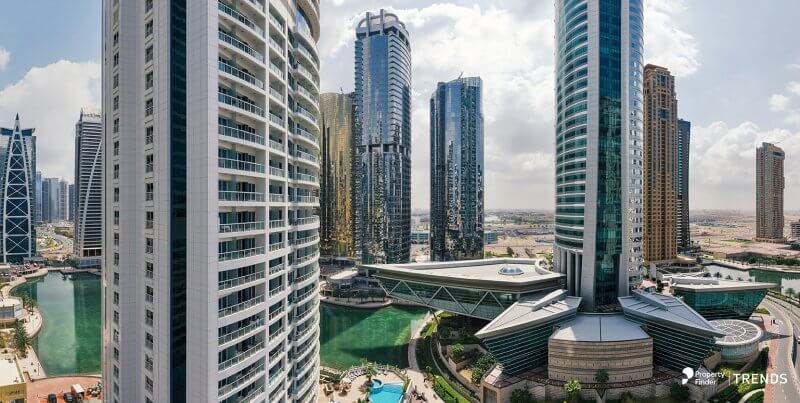
Should You Buy a Shell and Core or Fitted?
At this point you have made the decision to purchase either as an end user or an investor. Now it’s time to move on to deciding one of the most important decisions you will make: whether to purchase shell and core or a fitted office.
– Shell and Core
Shell and core (also known as base build) is a term used to describe the developer’s scope of works as the design and construction of the base building, while a range of other construction and fit-out works are left to be completed before the office is occupied. The concept of shell and core originated in the United States, where it was applied mainly to office buildings built by developers for rent. American developers initially fitted out offices, installing floors, carpet tiles, ceilings, air-conditioning, and lighting on the basis of a notional layout for prospective tenants. However, in many cases the actual tenant’s ideas often differed from the developers, so money was wasted modifying the fit-out. Over time the majority of developers started to leave their projects at the shell and core state, therefore allowing tenants to complete their own fit-out to their own specification. Purchasing a shell and core office will generally comprise of the structure, cladding, base plan – but the actual building itself includes fit-out of the common areas, main reception, lobbies, staircases, toilets, lift shafts, basements, loading bays, car parking, and external building works etc.
– Fitted
Fitted along with the term “fit-out” is a term used to describe the process of making interior spaces suitable for occupation, a usable fitted office space. We have two classifications of a fit-out: Cat A and Cat B. Purchasing a Category A (Cat A) office will commonly mean that the level of fit-out that the tenant’s own space is completed by the developer. There is no standard definition, but a Cat A fit-out may include: raised floors and suspended ceilings, distribution of mechanical and electrical services, internal surface finishes, blinds, and so on.
Purchasing a Category B (Cat B) is a more advanced fitout and may include: final finishes, installation of office partitions, installation of specialist facilities in meeting rooms, board rooms, conference rooms, toilets, pantry, and installation of special lighting. The building itself will include fit-out of the common areas, main reception, lobbies, staircases, toilets, lift shafts, basements, loading bays, car parking, and external building works etc. If you decide to purchase a shell and core office then my advice is to do the research accordingly. You will need to prepare yourself for developer approvals and all the necessary approvals from government authorities in order to complete the office fit out.
Each zone will have a fit-out guideline which must be followed. This contains information, processes, steps, technical requirements, health, safety & environment regulations, and so on, which have been established by each zoning authority in Dubai to assist building owners, tenants, designers, fit-out consultants and fit-out contractors to efficiently plan all activities. This guideline will apply to the commercial premises within the jurisdiction of the zoning authority responsible for undertaking new fit-out works, fit-out additions, and/or any fit-out modifications. The following scopes are usually covered in each guideline: architectural & partitioning, structural (if applicable), MEP (Mechanical, Electrical and Plumbing), installations, health, safety & environment regulations, and more.
With an office purchase in Dubai, it is clear the shell and core options are generally the most price sensitive and this can be a key factor in your decision making. However, it is important to also know and understand that doing the fit-out can take time and money – as outlined in the above paragraph. This can take anywhere from two to six months to complete. While purchasing a ready fitted office is an uncomplicated process, one of the main setbacks is that you may not find an office that specifically meets your expectations.
Which License is Right for You?
Now we can move on to understanding the licensing process. As a commercial agent, my job is to understand what my client’s business activity is. If they haven’t already taken a pre-approval (initial approval) or yet have a trade license of a certain zone, then when it comes to a purchase I must use my skills and guide them appropriately. When opening a business in the UAE one must be aware of the fact that Dubai operates on both mainland commercial license (normally referred to as DED) and free-zone commercial licenses.
– A Mainland Company
A mainland company is an onshore company licensed by the Department of Economic Development (DED) and is a Limited Liability Company structure (LLC) of the related emirate which is allowed to do business in the local market as well as outside the UAE without any restrictions. Having a UAE National as a local partner or local service agent is mandatory in all mainland commercial licenses with the shares being split to 51% being held by a UAE national and 49% shares going to the expat partner. DED licenses only operate within certain areas in Dubai, all classified as onshore zones, some examples of these areas are Marina, Business Bay, Barsha Heights; etc.
– A Free-zone Company
A free-zone company is an offshore company which is incorporated within a designated jurisdiction of the emirate where the company is allowed to do business inside the same free-zone or outside the UAE. Free-zone licenses are 100% owned by the expat partner and with more than twenty free-zones in Dubai, you have the option to choose the best trade license and set up in that specific jurisdiction that is right for you.
Once you have established which zone you would like to operate from, we can make the right purchase within that designated zone. For example, a DMCC (Dubai Multi Commodities Centre) license can only operate in Jumeirah Lakes Towers, therefore we can only purchase an office in JLT; a DSO (Dubai Silicon Oasis) license can only operate in the DSO, so we can only purchase an office in this zone; a DHCC (Dubai Healthcare City) license can only operate in DHCC so again we can only purchase in this particular zone.
One of the things I have encountered on numerous occasions is a client making a purchase outside of the zone because they found a “good deal”, but this only ended up costing them in the long run as operating in that zone was not possible, therefore it is important to do your due diligence before making your purchase.

ANGELA GEGG
Commercial Director
Provident Real Estate
Connect with Angela Gegg on LinkedIn
How many years’ experience do you have in real estate & market specialty?
6 years, large scale asset sales and retail.
Why was it important to you to write on the key points to consider when buying an office in Dubai?
While buying a home is pretty straight forward, there are many more things to consider when buying an office; as a commercial specialist I feel it’s my responsibility to bring more awareness to the steps and procedures involved in the purchase process, hence my current contribution.
In just a few words, describe the UAE real estate market in 2019
There is no doubt that in 2018 the market has been in favour of buyers, in 2019 the market will balance out and become an equal playing field for both buyers and sellers.
This article was originally published in Trends Report, Vol 5.



